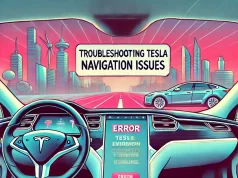Tesla Powerwall is a home battery system that stores excess solar energy and provides backup power during grid outages.
It can also help you save money by shifting your energy consumption to off-peak hours when electricity rates are lower.
However, some Powerwall owners may encounter a problem where their Powerwall does not charge to 100%, even when there is enough solar power available.
In this article, we will explain why this may happen and what you can do to fix it.
Why Powerwall May Not Charge to 100%?
There are several possible reasons why your Powerwall may not charge to 100%, depending on the mode you are using and the settings you have chosen.
1. Backup mode
This mode prioritizes keeping your Powerwall charged for backup purposes. However, it does not necessarily charge it to 100%, as this may degrade the battery over time.
According to Tesla, Powerwall typically stops charging at 99% and starts charging again at 96%². This helps preserve the battery’s health and longevity.
Additionally, if your Powerwall is approaching 100% charge, it may signal your solar inverter to reduce or turn off to protect your home from the excessive power produced⁵.
2. Self-powered mode
This mode maximizes your self-reliance on solar and battery power. In this mode, Powerwall will charge to 100% if there is enough solar power available.
However, if you have set a reserve percentage for backup, Powerwall will only charge up to that level and leave the rest for emergencies. For example, if you have set a reserve of 90%, Powerwall will only charge up to 90% in self-powered mode⁴.
3. Advanced modes
These modes allow you to customize your Powerwall settings based on your preferences and utility rates. For example, you can choose to charge your Powerwall from the grid during low-cost periods and discharge it during high-cost periods.
However, if you have enabled the Investment Tax Credit (ITC) option, Powerwall will not charge from the grid at all. This option is intended to comply with the IRS guidance of charging your Powerwall 100% from solar.
Therefore, if there is not enough solar power available, your Powerwall may not charge to 100%.
How to Fix Powerwall Charging Problem?
If you are experiencing a Powerwall charging problem, you can try the following steps:
1. Check your mode and settings
Make sure you are using the mode and settings that suit your needs and expectations. You can change your mode and settings in the Tesla app or online account.
You can also use the self-diagnosis tool on the Tesla support website² to identify your specific issue and troubleshoot it.
2. Restart your Powerwall
Sometimes, a simple restart can fix minor glitches or errors in your system. To restart your Powerwall, you can follow these steps:
- Turn off Powerwall by setting its switch to the OFF position.
- Turn off the AC breakers for the system (Gateway and Powerwall).
- Wait for at least one minute.
- Turn on Powerwall.
3. Restart your charging connector
If your charging connector is unresponsive, you can restart power for the connector or press the ‘Reset’ button¹. You can also troubleshoot the charger and make sure it is properly plugged into the wall and connected to your Tesla.
Contact Tesla support
If none of the above steps work, or if you notice any signs of heat damage (smoke, burning smell, or any other signs of burning) to the breaker box or any other component of your system, do not attempt to troubleshoot further.
Instead, reach out to Tesla customer support for assistance. You can call them at 1-877-961-7652 or email them at customersupport@tesla.com.
We hope this article has helped you understand why your Powerwall may not charge to 100% and how to fix it. If you have any questions or feedback, please let us know in the comments below.




